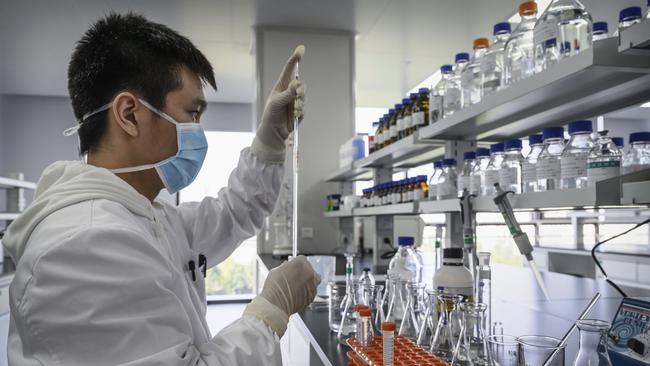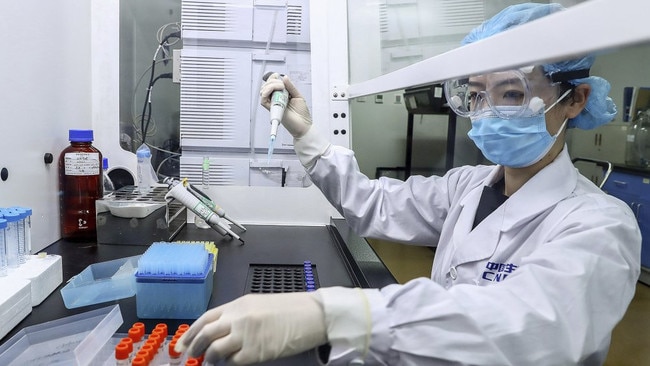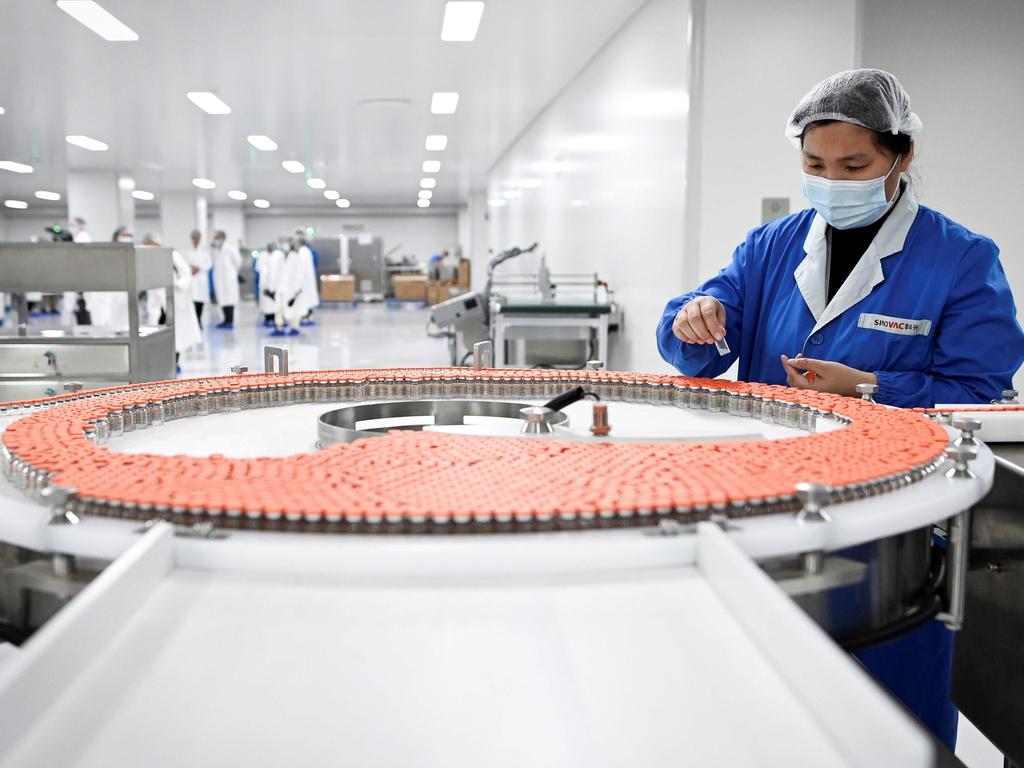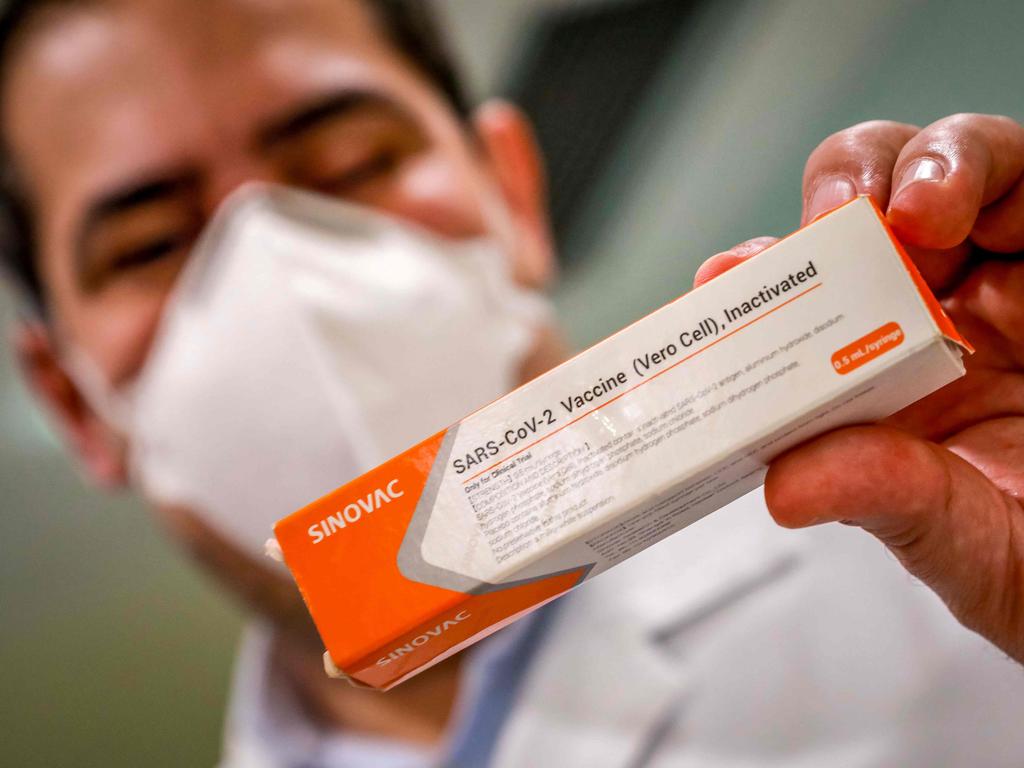Nearly 1m Chinese people have received SinoPharm’s Covid-19 vaccine
Chinese authorities have inoculated nearly a million Chinese people with a Covid-19 vaccine from Sinopharm.

Chinese authorities have inoculated nearly one million Chinese people with a Covid-19 vaccine from Sinopharm, though the state company has yet to provide solid clinical evidence of efficacy.
The vaccine from China National Pharmaceutical Group, or Sinopharm, has been administered to people including Chinese workers abroad, government officials and students, as part of an emergency-use authorisation by the Chinese government in July. Only a few of the people experienced mild symptoms and not a single person had a serious adverse reaction, according to a company statement citing Sinopharm Chairman Liu Jingzhen.
In the statement, dated Wednesday, Sinopharm said it was leading the world in all aspects of vaccine development, but didn’t offer evidence from ongoing international clinical trials that its vaccine is effective. Because China has few infection cases within its borders, Chinese firms have had to conduct trials overseas to test their vaccines’ efficacy. Their Western counterparts have also recruited participants internationally.
Sinopharm has argued that its vaccines work based on anecdotal observations from people who aren’t participants in the trials. Many were inoculated because they were headed overseas.
“Among construction personnel, diplomats, and overseas students who have travelled to more than 150 countries in the world, there has not been a single case of infection after inoculation,” the company said on Wednesday.

Sinopharm and other Chinese vaccine makers have a total of four vaccines in late-stage clinical trials, making them competitors in the global race to develop a vaccine. Turkey said on Thursday that it planned to order between 10 million and 20 million doses of a coronavirus vaccine from Chinese private firm Sinovac Biotech Ltd. Contracts will be signed later this week, Health Minister Fahrettin Koca told reporters.
Chinese makers appear to have fallen a step behind Pfizer Inc and Moderna Inc, which have reported strong results in trials over the past week.
Pfizer, which is collaborating with German firm BioNTech SE on a vaccine, said Wednesday it plans to ask the US Food and Drug Administration for authorisation within days after trials in the US and elsewhere showed its vaccine to be 95 per cent effective.
Moderna said this week that preliminary clinical trial results showed its vaccine to be 94.5 per cent effective.
The lack of evidence from leading Chinese vaccine makers such as Sinopharm suggests that their clinical trials have moved slowly, scientists said, possibly because the countries where trials are taking place have seen fewer COVID-19 cases, making it harder to measure the vaccines’ efficacy.
Sinopharm has two vaccines in late-stage clinical trials in more than 10 countries, including the United Arab Emirates, Bahrain, Egypt, Jordan, Peru and Argentina, according to its latest statement. Both vaccines are being used in the mass inoculations, the company said.
In at least one instance, a Chinese vaccine maker was tripped up by geopolitics. CanSino Biologics Inc, a private firm working with the Chinese military on a vaccine, was unable to start a trial as planned in Canada because Chinese customs authorities wouldn’t let the firm ship its vaccines there. Beijing has been in a dispute with Ottawa over the arrest of a high-profile Chinese tech executive.
Western experts have been dismissive of Chinese firms’ anecdotal evidence that their vaccines work and warn that building trust for Chinese vaccines globally will require solid clinical data. However, some say that Sinopharm’s record of inoculating hundreds of thousands of citizens might sway some countries to go for Chinese vaccines.
In September, the United Arab Emirates became the first country outside China to approve Sinopharm Covid-19 vaccines for emergency use.
Indonesian authorities are also considering approving Sinopharm’s vaccines, along with other Chinese vaccine candidates.
Brazil’s São Paulo state is planning to buy Sinovac’s vaccines, although President Jair Bolsonaro has tried to block it.
In recent months, some local Chinese governments have offered opportunities for residents to get vaccinated. In the export hub of Yiwu in the eastern province of Zhejiang, a staff member at a community clinic told The Wall Street Journal that roughly 100 people were lining up every day to pay 200 yuan (about $US30) for one shot of Sinovac’s two-dose regimen.
The process of distributing vaccines appears to be decentralised and helping more people get inoculated, said Yanzhong Huang, a senior fellow for global health at the Council on Foreign Relations in New York. “Local officials have strong incentives to make sure they have zero infections,” he said.
Meanwhile, a private Chinese firm, Anhui Zhifei Longcom Biopharmaceutical, is planning to test its vaccine in Uzbekistan, according to Chinese state media. If successful, its vaccine would be the fifth Chinese candidate to make it to late-stage clinical trials. A spokeswoman of the company declined to comment.
Wall Street Journal







To join the conversation, please log in. Don't have an account? Register
Join the conversation, you are commenting as Logout